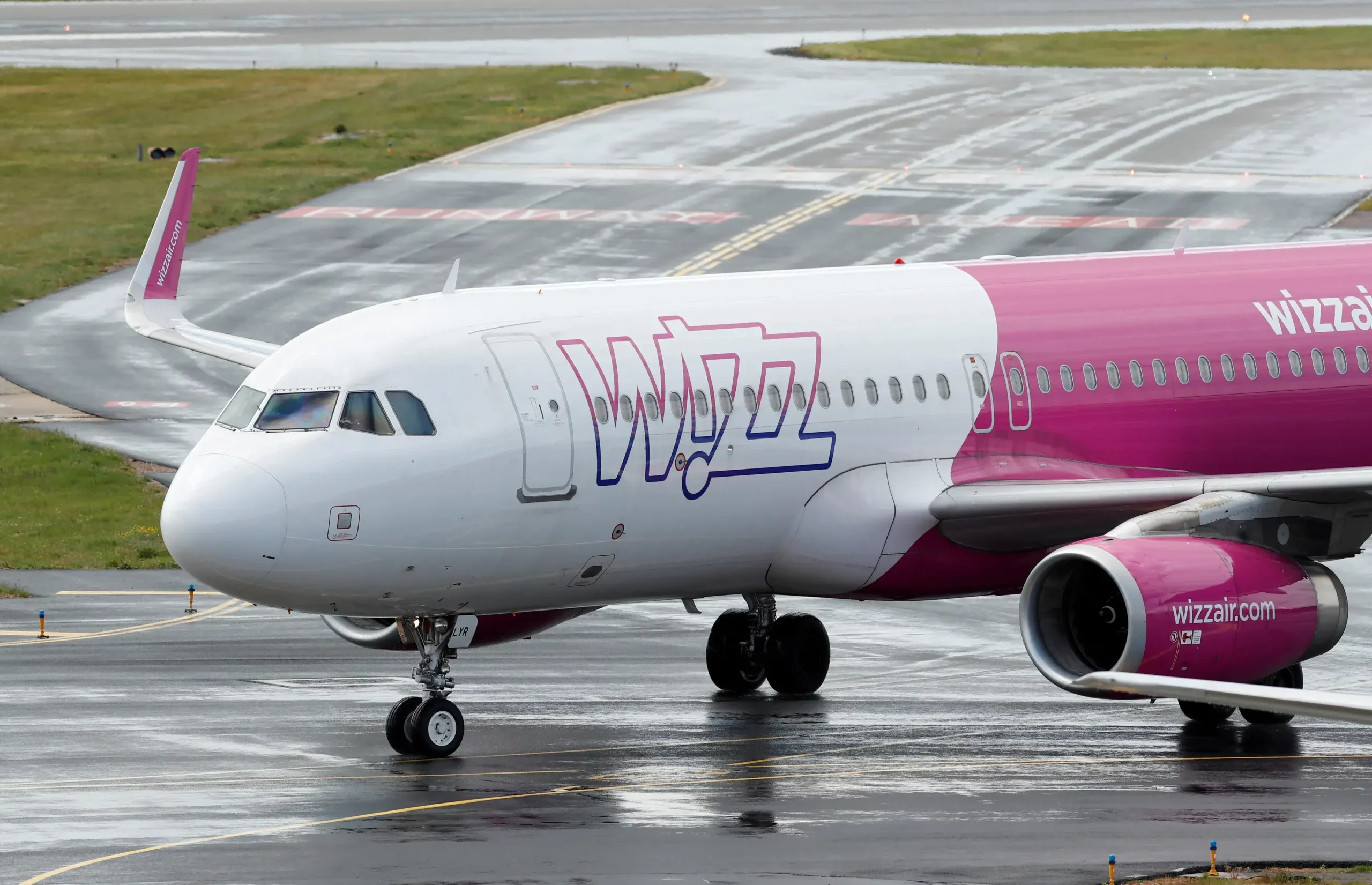
Analysis-Aircraft shortages turn into cash bonanza for some airlines
By Rajesh Kumar Singh
CHICAGO (Reuters) – Aircraft shortages are turning into a moneymaker for some airlines as the dearth of supply allows carriers to sell new planes to leasing companies at much higher prices than they paid.
Carriers such as Denver-based Frontier Airlines and Hungary’s Wizz Air have reported gains up to hundreds of millions of dollars through selling planes after taking delivery and renting them back for their own use. These sale-and-leaseback transactions have long been a way for airlines globally to generate liquidity and ease the strain on their balance sheets.
The tight airliner market has made these deals far more attractive, with U.S. airlines this year accounting for 24% of global sale-and-leaseback transactions, up from 10% in 2022, according to Cirium Ascend Consultancy.
Passenger carriers will receive 19% fewer aircraft this year than expected because of production issues at Boeing and Airbus, according to AeroDynamic Advisory. In addition, roughly 350 Airbus A320neo jets are expected to be grounded between 2024 and 2026 to deal with a flaw with RTX’s Pratt & Whitney engines.
As a result, new aircraft prices are 20% higher than the pre-pandemic period, said John Heimlich, chief economist at Airlines for America (A4A), an industry group that represents major U.S. carriers.
Frontier this month reported a gain of $71 million in the first quarter from these deals, up 78% from last year. It will likely see similar gains in the current quarter, said Rob Morris, head of global consultancy at Cirium.
Wizz Air booked a gain of about 245 million euros ($266.5 million) in its most recent financial year, up about 146%.
Morris described the sale-and-leaseback market as “very competitive” where pricing power sits with the selling party.
Some carriers are also benefiting more than others by getting the timing of orders right. Frontier, for example, placed a big order in 2021 when inflation was relatively lower and air travel demand had not recovered.
U.S. airlines such as Delta, American and United have also done deals, but not as often as Frontier. The discount carrier has more than 200 new Airbus planes on order for deliveries through 2029.
Frontier said this month while it is getting the planes from Airbus at a “material discount to the market,” it is selling them to lessors at a much higher price.
That bit of financial engineering allowed the ultra-low-cost carrier to nearly break even in the first quarter, worrying some analysts who said the airline’s business appears to have become more reliant on these deals than flying passengers.
“We remain concerned that outsized sale-leaseback gains are increasingly core to Frontier’s profitability,” said JP Morgan analyst Jamie Baker.
But Frontier sees its aircraft order book as a “major asset” in a supply-constrained market as production challenges at planemakers are expected to persist.
“It’s a core part of the business, the cash is real,” CEO Barry Biffle told investors this month.
Lessors share that view. Aengus Kelly, CEO of aircraft leasing giant AerCap this month predicted that tightness in global jet markets will last through the rest of the decade.
LEASE PRICES SURGE
Surging prices for new aircraft also mean soaring rents. Airlines are spending 30% more on aircraft leases than before the pandemic, A4A’s Heimlich estimated.
The lease rate for an Airbus A321neo has hit $455,000 per month, Cirium data shows, up 30% since 2020. Airlines are not only required to pay monthly rents for the duration of their lease contracts, but also maintenance compensation and a security deposit.
Delays in aircraft deliveries can also leave airlines in a spot, especially those dependent on these deals to generate cash and manage their expenses, said Courtney Miller, founder of consultancy firm Visual Approach Analytics.
Brazilian airline Gol, which filed for U.S. Chapter 11 bankruptcy protection this year, struggled to manage high leasing and interest expenses after Boeing failed to deliver planes at a rate that could fund its operations.
Frontier’s situation is not as dire, but it has reported profit in just one of the last five quarters.
“The delivery treadmill has to keep running to fund the airline,” Miller said. “What happens when the deliveries can’t keep up?”
($1 = 0.9195 euro)
(Reporting by Rajesh Kumar Singh in Chicago; Additional reporting by Tim Hepher in Paris; Editing by Rod Nickel)


